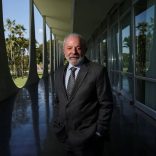Brazil sells rights to oil blocks near Amazon river mouth
Majority of Angola’s working population works in the informal economy

Angola is the Portuguese-speaking country with the biggest percentage of its active population working in the informal economy, with a rate of 94%, according to a report recently released in Geneva by the International Labour Organisation (ILO).
After Angola, among the Portuguese-speaking countries included on the list, comes Timor-Leste (East Timor) with 71.8%, followed by Cabo Verde (Cape Verde) with 46.5% and Brazil with 46%.
The same ILO report places Portugal as the Portuguese-speaking country where the informal economy comprises the smallest percentage of the population, at just 12.1%.
Entitled “Women and Men in the Informal Economy: A Statistical Approach,” the ILO report states that more than 60% of the world’s working population, or 2 billion people, work in the informal sector.
The paper notes that the transition from the informal economy to the formal one is one of the conditions for achieving “decent work for all.”
Jornal de Angola reported that the informal economy in the country has a weight in the Gross Domestic Product that varies between 25% and 65% and between 30% and 90% in the creation of non-agricultural jobs, citing statements by the senior economist of the International Monetary Fund Marcos Miguel during a conference on “Regional Economic Perspectives” organised by the National Bank of Angola (BNA) in partnership with the IMF.












Leave a Reply
Be the First to Comment!
You must be logged in to post a comment.
You must be logged in to post a comment.